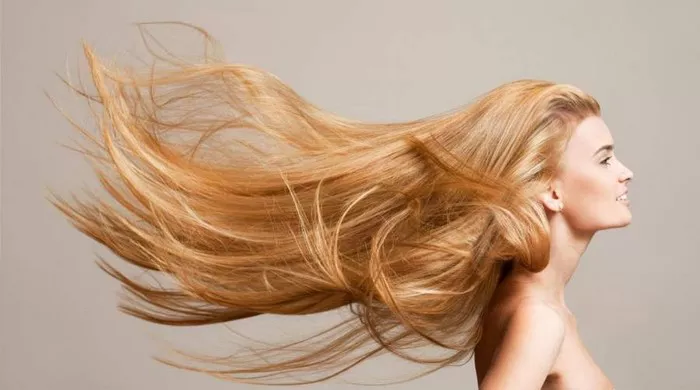Many people with natural hair wonder whether wetting their hair daily is good or bad. The answer isn’t simple because it depends on your hair type, lifestyle, and the products you use. Some people believe that water keeps hair moisturized, while others think too much water can cause damage.
In this article, we’ll explore the pros and cons of wetting natural hair every day. We’ll also discuss the best ways to keep your hair healthy, whether you choose to wet it daily or not.
Understanding Natural Hair
What Is Natural Hair?
Natural hair refers to hair that hasn’t been chemically straightened or altered. It can be curly, coily, wavy, or kinky. Natural hair tends to be drier than straight hair because the natural oils from the scalp have a harder time traveling down the curls.
Why Moisture Matters
Moisture is essential for natural hair. Without enough moisture, hair becomes dry, brittle, and prone to breakage. Water is one of the best moisturizers, but how you use it matters.
Pros of Wetting Natural Hair Every Day
1. Adds Moisture
Water is a natural hydrator. Wetting your hair daily can help maintain moisture levels, especially if you live in a dry climate.
2. Encourages Curl Definition
Many people find that wetting their hair helps redefine curls. A daily spritz of water can revive second or third-day hair without needing a full wash.
3. Helps with Styling
Some hairstyles, like wash-and-gos or twist-outs, work better on damp hair. Wetting your hair daily can make styling easier.
4. Reduces Product Buildup
If you use a lot of products, wetting your hair daily can prevent buildup by lightly rinsing away excess oils and creams.
Cons of Wetting Natural Hair Every Day
1. Can Cause Hygral Fatigue
Hygral fatigue happens when hair swells from water and then shrinks as it dries. Over time, this repeated swelling and drying can weaken the hair, leading to breakage.
2. May Strip Natural Oils
Frequent wetting, especially with harsh shampoos, can strip your hair of its natural oils, leaving it dry and prone to damage.
3. Increases Frizz
For some hair types, daily wetting can lead to unwanted frizz, especially if you don’t seal in moisture properly.
4. Time-Consuming
Wetting your hair daily means more time spent styling and drying it. This may not be practical for everyone.
Factors to Consider Before Wetting Hair Daily
1. Hair Porosity
Low Porosity Hair – Water sits on the surface and takes longer to absorb. Daily wetting may lead to product buildup.
High Porosity Hair – Absorbs water quickly but loses moisture fast. Daily wetting might help but requires sealing with oils or creams.
2. Climate
Dry Climates – Daily moisture may be necessary.
Humid Climates – Too much water can cause excess frizz.
3. Hair Type
Loose curls may handle daily wetting better than tight coils.
Thick, dense hair may take longer to dry, increasing the risk of hygral fatigue.
4. Styling Routine
If you wear protective styles like braids or twists, daily wetting may not be necessary.
Best Ways to Wet Natural Hair Daily (If You Choose To)
1. Use a Spray Bottle
Instead of fully soaking your hair, lightly mist it with water mixed with a leave-in conditioner.
2. Avoid Hot Water
Cold or lukewarm water is better for preventing dryness.
3. Seal in Moisture
After wetting, apply a light oil (like jojoba or argan) or cream to lock in moisture.
4. Don’t Over-Shampoo
If you wet your hair daily, shampoo only 1-2 times a week to avoid stripping natural oils.
Alternatives to Daily Wetting
If daily wetting isn’t for you, try these methods to keep hair moisturized:
1. The LOC or LCO Method
L – Liquid (water or leave-in conditioner)
O – Oil (to seal moisture)
C – Cream (for extra hydration)
2. Deep Conditioning
Weekly deep conditioning treatments can keep hair hydrated without daily wetting.
3. Protective Styles
Braids, twists, and buns help retain moisture longer.
4. Satin or Silk Bonnets
These reduce moisture loss while sleeping.
Common Myths About Wetting Natural Hair
Myth 1: Water Alone Dries Out Hair
Water doesn’t dry hair—it’s the lack of sealing moisture afterward that causes dryness.
Myth 2: Daily Wetting Causes Hair Loss
Only excessive manipulation or harsh drying techniques cause breakage, not water itself.
Myth 3: You Should Never Wet Hair Between Washes
Light misting is fine as long as you follow up with moisturizing products.
Expert Tips for Healthy Natural Hair
Listen to Your Hair – If it feels dry, add moisture. If it feels mushy, reduce wetting.
Use the Right Products – Avoid sulfates and alcohols that dry out hair.
Protect Hair at Night – Use a satin pillowcase or bonnet.
Trim Regularly – Prevents split ends from traveling up the hair shaft.
Final Verdict: Should You Wet Your Natural Hair Every Day?
It depends. If your hair loves water and stays healthy with daily moisture, go for it. But if your hair feels weak or overly dry, reduce wetting and focus on sealing in moisture.
The key is balance—don’t drown your hair in water, but don’t let it stay parched either. Experiment to see what works best for your curls.
Conclusion
Wetting natural hair daily has both benefits and risks. The best approach is to understand your hair’s needs and adjust your routine accordingly. Whether you choose to wet your hair daily or not, always prioritize moisture retention and gentle handling to keep your natural hair healthy and strong.
By following these tips, you can enjoy beautiful, hydrated curls without unnecessary damage. Happy haircare!
Related topics:
- Should I Wash My Hair Every Day for Dandruff?
- Should I Wash My Hair With Water Every Day?
- Should I Comb Curly Hair?


